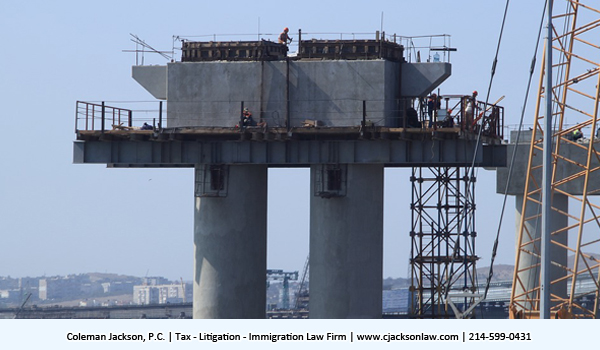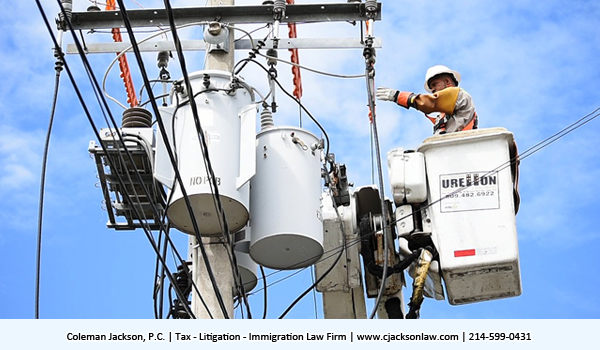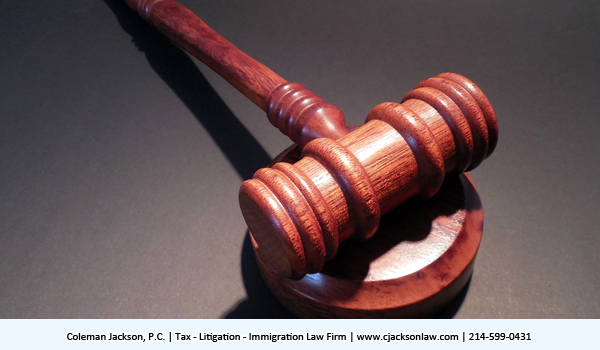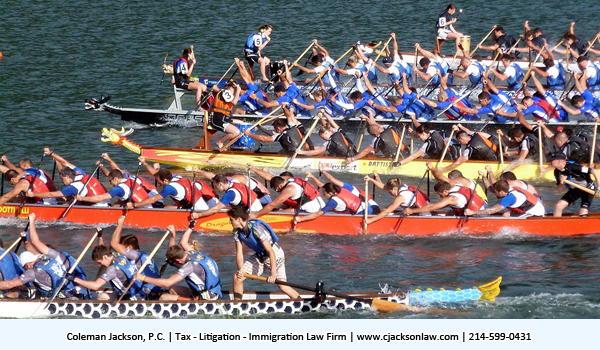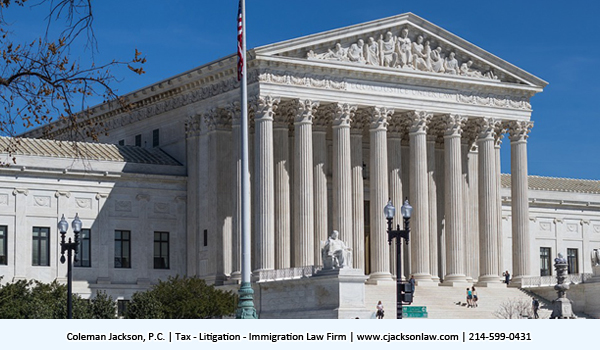By: Coleman Jackson, Attorney and Certified Public Accountant
February 1, 2022
The first Step in Avoiding Litigation:
The subcontractor must understand the federal market place— the rules and regulations governing federal acquisition of goods and services by the U.S. federal government are codified in the Federal Acquisition Regulations. Subcontractors who fail to understand the Federal Acquisition Regulations (commonly referred to as the FAR) and the related policies, agency memorandums and court decisions interpreting the FAR are flying in the dark. The first step in avoiding legal problems in general is not to make legal mistakes. It is difficult to avoid making legal mistakes when you don’t know the applicable rules, regulations and laws! Subcontractors and their advisors must be skilled in the FAR and the related Cost Accounting Standards applicable to all federal contracts, except defense department contracts which are governed by the Defense Federal Acquisition Regulations otherwise known as the DFARs. The Federal Acquisition Regulations can be found at Chapter 1 of Title 48 of the Code of Federal Regulations, 48 CFR 1 and etc., as amended.
Consider Selling to the Federal Government:
Why bother selling your goods and services to the United States government? The federal procurement market is huge! The United States government is one of the most potent consumers of goods and services in the world. This 500 hundred-billion-dollar industry requires setting aside at least 23 percent of these contracts specifically for small businesses. Set aside policies are built into the federal procurement market for small businesses, historical disadvantaged businesses, veteran owned businesses and more which are all designed to increase the competition and participation of small businesses like yours. Are you feeling a little intimidated by the prospect of jumping right in and selling your expertise and products to the federal government? You don’t have a clue as to how and where to begin? Would you consider an ideal scenario where you can ease into this potentially profitable business of government contracting; take it slow; learn the rules of the road at your pace; and not take on more than your company can handle? Subcontracting is a fantastic way to go slow, learn the rules, learn the players and gradually introduce your business to public contracting.
The FAR expects the federal government to announce the majority of purchases greater than $25,000 at the point of entry for the entire government located in www.fedbizopps.gov. Companies interested in becoming subcontractors for a specific acquisition should contact the agency to obtain a copy of the application and, perhaps most importantly, attend the agency’s proposal conference in person to get additional information about the acquisition and interact with other companies, especially potential prime contractors and higher-level subcontractors.
While most federal procurement is subject to “full and open competition” requirements, whereby all responsible sources must be allowed to compete, these requirements do not apply to subcontracting, giving prime contractors ample leeway in the competition of subcontractors. The only exception is for cost-reimbursement contracts that include the “Competition in Subcontracting” clause in FAR 52.244-5, which requires prime contractors to select subcontractorson a competitive basis to the maximum practical limit. Further under FAR, the prime contractor must determine the availability of subcontractor sources unless the government includes a guarantee of source availability or directs all potential prime contractors to use a specific subcontractor.
Sometimes the government must consent to the placement of subcontracts. If a prime contractor has a government-approved procurement system, the government’s prior consent will be limited only to the subcontracting limitations defined by the Contracting Officer (CO) in the “Subcontracting” clause of the prime contract. If there is no such approval, consent to subcontract is required to reimburse costs, time and materials, labor hours or arrangements by letter, and for uncharged actions under fixed-price contracts that exceed the simplified procurement limit (currently $100,000). For cost-type contracts, the contractor must notify the agency before award of any cost-plus flat rate subcontracts and any fixed-price agreements that exceed the dollar limits specified by regulation.
Rather than getting too deep into government contracting and cost principles in this blog; let me just say that subcontractors or their advisors must be aware of procurement standards, various types of government contracts and standard cost accounting principles applicable to government procurement contracts. These principles and rules are set-forth in the Federal Acquisition Regulations (FAR) and Cost Accounting Standards (CAS).
The Federal Acquisition Regulations is where Subcontractors Should Begin:
Why should you begin with the FAR? The Federal Acquisition Regulations governs federal procurements therefore in order for you to understand your rights and obligations in this market place, you and your advisors must become skilled in the FAR. If you are interested in becoming a federal procurement subcontractor, visit the FAR and read on because you must understand the rules and the various parties:
The government subcontractor is defined by Federal Acquisition Regulation (FAR) 3.502-1 as:
Any person, other than the prime contractor, who offers to furnish or furnish any supplies, materials, equipment, or services of any kind under a prime contract or a subcontract entered into in connection with such a prime contract and included any person who offers to furnish, or a subcontract provides general supplies to the prime contractor or a higher tier subcontractor.
A prime contractor contracts directly with the client, which is the federal government. The subcontractor would agree with the prime contractor (prime) to provide goods and services for them to be able to fulfill the requirements of the original government contract.
The subcontractor to a government prime contractor arrangement is common in public contracting and is an excellent opportunity for the subcontractor to gain valuable experience in government contracting, build their reputation in doing quality work, and meeting quality government contract attorneys and other advisors, contract officers and other government officials in various agencies.
As such, there are lucrative opportunities for both prime contractors and subcontractors coming from a contractual relationship with the US government. Because of this, both need to understand the fundamentals of subcontracting. In the rest of this blog, we provide a brief overview of the central procurement rules that affect subcontracts, especially regarding the legal provisions on the rights or not of subcontractors against termination for convenience in government contracts.
Most of the federal statutes and regulations that apply to prime contractors do not apply to subcontractors because the federal government and subcontractors generally lack “privity of contract”. That simply mean that as a subcontractor to a prime contractor, you do not have a direct contractual relationship with the U.S. government. Subcontractor’s do not have a contract with the government.
Various provisions of the FAR deals with government immunity. Just know for now that prime contractors and subcontractors are not considered governmental agents. State or local tax exemptions may be available to subcontractors pursuant to the rules and guidelines at FAR 29305.
Sometimes subcontracting is not a possibility in government contracting!
Specific regulations or terms of the contract may limit the offeror’s ability to use subcontractors. The public contract clause “Limitations to Subcontracting” which is set-out in FAR 52. 219-14,restricts the amount of subcontracting in service contracts where the principal must use at least 50% of the cost of contract performance incurred with personnel of the employees themselves. Construction contracts generally prescribe specific percentages of work performed. Several clauses strongly encourage major government contractors to subcontract to small businesses and disadvantaged small businesses, and FAR 52.219-10 requires each successful bidder of contracts with a value more than $500,000 ($1 million for construction contracts) to present an acceptable subcontracting plan with monetary incentives for exceptional performance pursuant to FAR 52.219-10 and provides penalties for non-performance in good faith pursuant to FAR 52-219-6. Subcontracting is important in research and development contracts. But note that FAR 35 requires the government agencies know whether proposed subcontractors are qualified and require advanced notification of subcontracts for technical or scientific work. These FAR provisions are but a few that touches on the rules and regulations that applies to subcontracting in federal procurement.
In general, since subcontractor agreements are essentially private matters between prime contractors and subcontractors, aggrieved subcontractors have few rights in a federal forum to challenge alleged violations of procurement rules before contract award.
The Bid Protest:
The General Accounting Office, “GAO” is the usual forum for “protests” – a written objection by an interested party to a request or award. The complaint alleges improprieties in awarding a contract. In the FAR an “interested party” is defined as an “actual or potential bidder or offeror whose direct economic interest would be affected by the award”; therefore, a subcontractor would not meet this definition. A subcontractor cannot file a protest! This stakeholder exclusion also applies to protest efforts in the United States Court of Federal Claims. Note that GAO rules; however, recognizes an exception for subcontractor protests where subcontractor selection is “by” the government. This process occurs when all or most of the significant aspects of the procurement are controlled by federal agency officials, and the prime contractor is merely an agency channel whose primary concern is administrative. In addition, subcontractors may be entitled to monetary relief when their direct contractors prevail in a joint effort protest before the GAO. Successful protesters can recover bid costs, proposal preparation costs, and protest costs.
Termination for Convenience:
Termination for convenience means the exercise of the Government’s right to wholly or partially terminate the performance of work under a contract when it is in the Government’s interest. See Federal Acquisition Regulation (FAR) 2.101. The federal governments right to terminate a procurement contract for convenience is the exercise of the sovereign. The right to terminate is made part of almost all federal government contracts by including the standard Termination for Convenience of the Government clauses into the contract. See FAR 52.249-1 through FAR 52.249-5. The Termination for Convenience clause in commercial item contracts issued under FAR Part 12 can be found in paragraph (l) of FAR 52.212-4. Even when the termination for convenience clause is left out of the government contract, that means nothing because the clause nonetheless is generally read into the contract by the operation of law under the “Christian Doctrine.” See GL Christian & Assoc. v. the United States, 312 F.2d 418 (Ct. Cl. 1963).
FAR 49.104 states, in part, that “the notice and clause applicable to convenience terminations” generally requires that the contractor: “(1) Stop work immediately on the terminated portion of the contract and stop placing subcontracts thereunder; (2) Terminate all subcontracts related to the terminated portion of the prime contract; (…).” The contractor must notify its project team, including suppliers and subcontractors, to stop work immediately on the terminated portion of the contract and stop placing subcontracts thereunder. The contractor must complete all agreements related to the closed part of the contract, preferably through a written notice referencing the flow down clauses and circumstances.
When the government closes a principal contract, the principal terminates the corresponding subcontract, and the provisions of FAR 49 explain the procedures for settling the central contracts and subcontracts. The fundamental principle is that the subcontractor has no contractual rights against the government upon the termination of the main contract. The main contractors and subcontractors are responsible for the prompt settlement of their proposed termination agreement.
FAR 49.105 (Duties of Termination Contracting Officer After Issuance of Notice of Termination), in turn, states that “[c]onsistent with the termination clause and the notice of termination, the TCO shall”: (1) Direct “the action required of the prime contractor;” (2) Examine the prime contractor’s termination settlement proposal and, when appropriate, the settlement proposals of subcontractors; (3) Promptly negotiate a settlement with the contractor and enter into a settlement agreement; and (4) Promptly settle the contractor’s settlement proposal “by a determination for the elements that cannot be agreed on if unable to negotiate a complete settlement” (see FAR 49.105(a)). Moreover, FAR 49.105(c) states that the TCO “should promptly hold a conference with the contractor to develop a definite program for settling.” In addition,
FAR 49.105(c) goes on to state that “[t]opics that should be discussed at the conference and documented include”:
(1) General principles relating to the settlement of any settlement proposal, including obligations of the contractor under the termination clause of the contract;
(2) Extent of the termination, point at which work is stopped, and status of any plans, drawings, and information that would have been delivered had the contract been completed;
(3) Status of any continuing work;
(4) Obligation of the contractor to terminate subcontracts and general principles to be followed in settling subcontractor settlement proposals;
(5) Names of subcontractors involved and the dates termination notices were issued to them;
(6) Contractor personnel handling review and settlement of subcontractor settlement proposals and the methods being used;
(7) Arrangements for transfer of title and delivery to the government of any material required by the government;
(8) General “principles and procedures to be followed in the protection, preservation, and disposal of the contractors and subcontractors’ termination inventories, including the preparation of termination inventory schedules;”
(9) Contractor accounting practices and preparation of SF 1439 (Schedule of Accounting Information FAR 49,602-3;
(11) Accounting review of settlement proposals;
(12) Any requirement for interim financing like partial payments;
(13) Tentative “schedule for negotiation of the settlement, including submission by the contractor and subcontractors of settlement proposals, termination inventory schedules, and accounting information schedules (see [FAR] 49.206-3 and [FAR] 49.303-2)”;
(14) Actions taken by the contractor to minimize the impact upon employees adversely affected by the termination (see paragraph (g) of the letter notice in FAR 49.601-2); and
(15) The “[o]bligation of the contractor to furnish accurate, complete, and current cost or pricing data, and to certify to that effect by FAR 15.403-4(a)(1) when the amount of a termination settlement agreement, or a partial termination settlement agreement plus the estimate to complete the continued portion of the contract exceeds the threshold in FAR 15.403-4.”
The hallmark of subcontracting in government contracts is the requirement to flow-down specific prime contract provisions to subcontractors. The FAR outlines mandatory and suggested flow-downs, but the prime will also want to evaluate with counsel whether to include additional requirements in subcontracts. Subcontractors would want to evaluate with their counsel the implication of flow-down clauses prior to executing any prime contract associated with a government contract. Even without the flow-down clause, subcontractors must be aware of other government contract rules that could place obligations on them.
One example of a government contract provision that can apply to subcontractors even if it’s not mentioned in the four corners of the contract is the termination for convenience provisions of the FAR. As we have said before in this blog, this is an essential aspect of procurement contracting that is not controlled by flow-down clause but will undoubtedly be one of the clauses that everyone would want to include in their subcontracts. If the government terminates the prime contract for convenience and the subcontract does not have a parallel provision, the prime may face opposition from its subcontractor regarding termination. The subcontractor may argue that the government’s termination for convenience is not adequate to cause the prime to terminate the subcontract.
The easy fix (and one I see in most subcontracts) is including a provision that allows the prime to terminate the subcontract for convenience. Subcontractors will want to ensure that the termination for convenience flow-down is based on similar action from the government and that the clause includes the same rights for submitting settlement proposals
Under the Contract Disputes Act, otherwise known as the CDA, a “contractor” has the right to file a contract claim against the federal government. Even if a subcontractor think they have suffered damages through government action, federal procurement law may say no. This is because the CDA and the FAR “Disputes” clause FAR 52.233-1 says “contractor”. Subcontractors generally do not have the right to seek and collect indemnity because they have no privity of contract with the government. Consequently, when the subcontractor seeks government relief, it can proceed indirectly through the prime contractor in one of two ways: first, the prime contractor must sponsor and certify the subcontractor’s claim where the certification reflects the prime contractor’s belief that there is a “good basis” for the claim, and second, a prime contractor filing a lawsuit may include a component of its responsibility to with a subcontractor.
There are rare exceptions to the general rule of “non-direct right of action” for subcontractors in CDA cases:
First, the subcontractor has direct right of action against the United States government when the contract terms provide that the parties give the subcontractor the right of immediate recourse against the government. Still, since the FAR prohibits Contracting Officers from consenting to such an agreement, this circumstance is practically non-existent. Second, privity for CDA purposes will exist when the contract stipulates that the contractor will act as a purchasing agent for the government. Third, subcontracting privity will be present when the government circumvents the contractor’s authority to become a mere agent of the government. For example, the Small Business Administration awards an agency a contract under “Program 8(a).”
Summary of Main Points — Become Familiar with the Federal Procurement Market Place &Know the Federal Acquisition Regulations:
- Subcontractors generally do not have a direct contractual relationship – privity of contract- with the federal government and therefore have few contractual rights and responsibilities with each other.
- FedBizOps has valuable information for potential subcontractors looking to do business with prime contractors. Potential subcontractors should also be familiar with other possible business paths, such as pre-bid conferences for prime contractors listed on various federal agency’s website.
- Protect yourself against inappropriate abatement clauses in the main contract, especially when they conflict with other subcontract clauses. Also, make sure that applicable vital provisions, such as those dealing with contract terms, changes, data rights, adjustment of costs and pricing, and government termination rights, are included in the subcontract. This might require the company to hire experienced government contract counsel either inside or outside counsel.
- As prime contract awards are often dependent on the quality of the proposed subcontractor’s technical qualifications and past performance; work closely with your prime contractor to ensure they are in order.
- Major contractors must ensure that their proposed subcontractors are not excluded or suspended. Subcontractors must also do appropriate due diligence of the prime and any subcontractors that could impact their work performance or reputation.
- Subcontractors generally do not have the right to protest. Still, a restricted exception is the possibility to recover the costs of preparing the subcontract proposal when the main contractor prevails in a protest. Subcontractors should hire their own counsel independent of prime contractor counsel in any dispute matter since prime contractor counsel is obligated to represent their client even at the expense of subcontractors.
- Subcontractors have limited rights to obtain assistance from government COs when the main contractors do not pay on time. However, the Miller Act on construction projects offers subcontractors extra protection when a payment bond is available. Counsel representing subcontractors must be independent of prime contractor.
- Subcontractors who have a dispute with the government generally do not have rights of direct appeal, so if they believe that government action justifies a resolution, they should try to persuade their prime contractor to “sponsor” a claim or include its costs in the main contractor’s complaint. Also, investigate whether one of the rare circumstances of privity exists. These are legal matters for which appropriate counsel should be advising the subcontractor with respect to its legal rights, if any.
- Familiarize yourself with FAR Part 49 if your subcontract is terminated to maximize your recovery.
Subcontracting is an excellent way to begin working with the government and a profitable avenue for profitability for any small business; but, make any company desiring to participate in the federal procurement market place must be well informed with regards to the Federal Acquisition Regulations and the Cost Accounting Standards and other rules applicable to government contracts.
This law blog is written by the Taxation | Litigation | Immigration Law Firm of Coleman Jackson, P.C. for educational purposes; it does not create an attorney-client relationship between this law firm and its reader. You should consult with legal counsel in your geographical area with respect to any legal issues impacting you, your family or business.
Coleman Jackson, P.C. | Taxation, Litigation, Immigration Law Firm | English (214) 599-0431 | Spanish (214) 599-0432 | Portuguese (214) 272-3100

